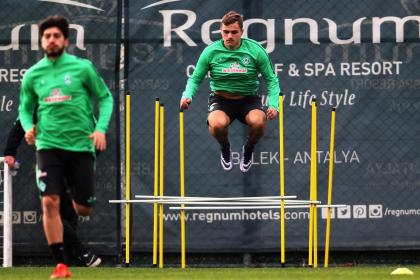Why MLS should abolish the SuperDraft
Just labeling something "super" doesn't make it so. And turning it into a big event, broadcasted on national television, doesn't render it relevant. Yes, somebody hears the tree falling in the forest, but does it follow that the sound it makes is important?
On Thursday, Major League Soccer conducts its annual SuperDraft of college players and some young foreign signings. But with every year that passes, the question of whether the draft is worthwhile or even useful becomes more urgent.
The league's own rapid development has relegated its primary talent distribution mechanism to an afterthought. Some years ago, MLS made its clubs open their own youth academies. They dutifully did and then began investing significantly. And that's where the best young talent now emerges from – not the college game. And when the late-bloomers do spend a few years in the collegiate game, their rights are often already controlled by an MLS team because they were registered to their academies at some point.

Case in point: Jordan Morris, the biggest prize to emerge from the college game in years, if not decades. He's a full U.S. national teamer with seven caps and is apparently also being pursued by Werder Bremen of the German Bundesliga. Morris won't be in Thursday's draft. His rights are controlled by the Seattle Sounders, which has offered him a homegrown contract, the typical method for picking the fruit of your development labor.
This is how it goes now. The real talents are either signed out of high school through the academy, or, if they're not quite ready, brought back as "homegrowns" after a year or two in college. (Save for Morris, a total aberration, none of the upperclassmen who come out of the NCAA seem to be serious prospects.)
The notable exception was Cyle Larin, a Canadian striker who didn't manage to stick after several training stints in Europe, committed to the University Connecticut, stayed for two years and broke the MLS rookie scoring record with expansion team Orlando City in 2015.
But Larin has been the most productive rookie in years – well, ever, actually. Most draft classes don't produce more than a small handful of players who get playing time straight away, and no more than a dozen or so who even have anything resembling a professional career.
The draft, however, is a happening now. If it doesn't actually matter all that much, it's the centerpiece of the big yearly NSCAA coaches' convention. And it's a way for MLS to stay in the conversation during its offseason, to keep its hardcore and new fans alike engaged. It produces content for its social channels, exposure for its partners and sponsors.
MLS speaks of its aspirations to compete in the global soccer landscape, but in fear of alienating the stateside sports consumer it remains committed to being a major American sports league. And those have conferences and playoffs. And a draft. So that's probably not going to change anytime soon, as evidenced by the league's zeal to keep the draft relevant by re-stocking its pool with foreign prospects.
But if there are obvious marketing and optical benefits to retaining the draft, there are just as many to abolishing it.
Imagine, for a minute, that it didn't exist.
Rather than being handed four or so players every year that they have incurred no development expenses on, the teams would need to produce more players of their own to fill out their rosters cheaply and lay the foundation for the future. That would incentivize further academy investment. Without the low-cost talent seeping out of the draft, their understudies and reserve team players will have to come from elsewhere.
Certainly, plenty of collegians would still find their way to the professional game from the college ranks – although probably not nearly as many. But they would be free to sign with whatever team they … actually, scratch that. The free market-averse league would never agree to amateur free agency – it still isn't clear what gives MLS, or any other league, the right to impose a single potential employer on unattached players, but whatever – and probably develop some other claim system.
But ending the draft would probably still limit the league's scope in controlling the player pool's compensation. That might accomplish two things: it could reduce the compensation of the top end of the pool, where above-market Generation Adidas contracts lure underclassmen out of college early; and it might simultaneously raise the median point on the pay scale, as only the worthy players would actually get picked up. That, too, would incentivize more academy development.
The overarching point, however, is that drafts are, above all, intended to help protect competitive balance. It doesn't do that in MLS. It never really has. With an almost infinite player pool abroad and limited talent being developed domestically, the impact of a rookie class is neither immediate like in the NBA or NFL, or felt over the long term, as in MLB and the NHL.
Save for the rare exception, which would have found its way into the league anyway, the draft is just a pipeline for cheap labor. MLS has moved past the days where it pays its rookies $12,900 out of necessity. It's evolved past the near-exploitative contracts. The SuperDraft is a relic from that time, which actually constrains player development more than it enhances it. So why not do away with that as well?
Leander Schaerlaeckens is a soccer columnist for Yahoo Sports. Follow him on Twitter @LeanderAlphabet.


